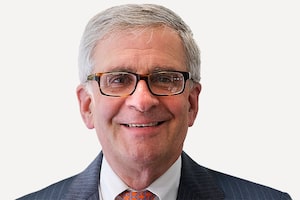
Ballots that have been sorted sit in bins at the Denver Elections Division during the presidential primary in Denver on Super Tuesday, March 5.JASON CONNOLLY/Getty Images
One by one, the states dropped into Donald Trump’s column on Super Tuesday election evening, and as they fell, the last remnants of doubt fell as well: For all his foibles, for all his intemperate remarks, for all his controversial vows to reshape American government and the global order, for all his 91 criminal indictments, he almost certainly will be the Republican presidential nominee.
That question is all but answered, the only barriers being a health crisis and a legal conviction, and even one of those may not be enough to topple him from the pinnacle of the greasy pole of politics. But what lingered Tuesday night, along with the ultimate political fate of his lone Republican challenger, Nikki Haley, were broader political questions.
How could a country of 335 million people settle on Mr. Trump and President Joe Biden as its general-election finalists? How could a country where half the population is under the age of 40 put forward two men essentially twice that age? How could a country that styles itself as a democracy, where the people rule, wind up with two nominees the people clearly do not want?
In a period when political figures of all stripes, experts of all perspectives, and voters across the country blithely toss around the phrase “the country is broken,” there may be no greater piece of supporting evidence than the unsavoury November choice the political system is serving up.
Super Tuesday elections bring Biden, Trump closer to winning their party’s nominations
This is relatively rare in American history. In the 2008 election, for example, Republicans understood that Barack Obama was a glittery pioneer, and Democrats admired the war record of John McCain. But this is the third consecutive election in which there is public skepticism if not revulsion about the choice, a trend that began in 2016, when majorities had an unfavourable view of both candidates, according to NBC exit polls.
“The result may be that this is now an ungovernable country,” Thomas Whelan, a Boston University historian, said in an interview. “We’ve been building up to this but now both sides refuse to talk to each other and refuse to see any good in each other. This is like a sullen Thanksgiving dinner in a dysfunctional family.”
This time, once again, the choice isn’t about the lesser of two evils, for members of both parties regard the standard-bearer of the rival party as evil incarnate. This year almost no one is weighing one or the other. Opinions on both political figures are fixed and have been for months if not years.
This time, the conundrum is why the country is saddled with a choice that speaks of the evils of two lessers.
This time, Super Tuesday – once a joyful political house party, where Americans gathered around the television watching each state check in with its results – is marked by an inevitable, joyless march to two presidential nominations by two contenders who have managed to have no appeal to members of the opposite party.
The result will be a campaign determined not by persuasion but by participation – which side can mobilize its faithful to go to the polls and support the party nominee. Debates are unnecessary, except as a forum for bringing to light the faults of the rival party or to measure Trump untruth against Biden gaffe.
Yes, Mr. Trump has pulled an almost inside straight in his drive to a third Republican presidential nomination, Ms. Haley’s close Vermont victory notwithstanding. And yes, most Democrats believe that Mr. Biden has done a credible if not creditable job as president. Both have rolled through the caucuses and primaries. But both possess significant weaknesses.
And while Mr. Biden was prevailing in his cruise to assemble sufficient convention nominees to assure his nomination, the night really belonged to Mr. Trump.
Never has a candidate in a contested caucus and primary season – not Ronald Reagan, whom he now has surpassed as the reigning figure of Republican mythology; not Mr. Obama, whom Mr. Trump succeeded as president and who remains a special principal rival in the Trump worldview – moved so effortlessly, so effectively, so decisively and so relentlessly through the states: Iowa, New Hampshire, South Carolina, Nevada, Michigan, Missouri, Idaho and then the parade of states that checked in with a Super Tuesday verdict that verged on the monotonous.
It was a triumph of popularity (in part owing to the peculiar form of entertainment that he offers supporters in raucous rallies) and planning (meticulous, and a vivid contrast to his disorganized 2016 effort) but also of the will: Mr. Trump’s iron will to reclaim the prize that he, against all evidence, says he believes he earned four years ago and is determined to capture again, against the same rival, a sitting president with the disadvantage of having long passed the biblical age allotment and having advanced into the 80s.
 David Shribman
David Shribman